Capita Selecta
Capita Selecta is a virtual talk series organized by the ATLAS consortium with the aim to promote cross-talk between ESRs and industrial and clinical partners. In each event, a delegate from the industry (e.g. partner) or a clinical representative is invited to give a talk on a selected topic relevant to the ATLAS project.
In this page, more information about the speakers and the topic of the talks is provided. In addition, when possible, the recordings of each talk are available.
So far, the organized capita selecta have been the following:
- Leonardo S. Mattos: µRALP and beyond: Micro-technologies and systems for robot-assisted endoscopic laser microsurgery.
- Giovanni Monizzi, MD: Interventional cardiology: What we currently do and future perspectives
- Jaume Amat: Animal models in MD verification process
- Jules Scheltes: The DEAM adventure: what it takes to bring an octopus into the operating theater
- Alberto Arezzo: The future of endoluminal robotics
- Massimiliano Simi: Surgical Robotics trends and novel applications: SYMANI a Robot for Microsurgery
- Domenico Veneziano: AI and the future of surgical education
Leonardo S. Mattos(IIT – Genova) |
Capita Selecta #1: µRALP and beyond: Micro-technologies and systems for robot-assisted endoscopic laser microsurgery. The talk covered (1) the motivations and rationale that led to the implementation of the European project µRALP, a targeted research project dedicated to the development of micro-technologies and systems for robot-assisted laser phonomicrosurgery; (2) the achievements and key contributions of the project in different research areas, including laser aiming control, flexible robotic endoscopes, augmented imaging, and surgical control interfaces; and (3) an overview of the research conducted by project partners beyond the end of µRALP, leading to an outline of the current state-of-the-art in the area. |
|
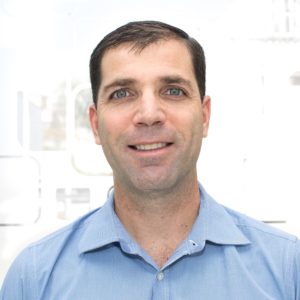 |
Leonardo S. Mattos (B.Sc. 1998, M.Sc. 2003, Ph.D. 2007) is Head of the Biomedical Robotics Laboratory at the Italian Institute of Technology (IIT, Genoa). His research background ranges from robotic microsurgery and assistive human-machine interfaces to computer vision and micro-biomanipulation. Leonardo received his Ph.D. degree in electrical engineering from the North Carolina State University (NCSU, USA), where he worked as research assistant at the Center for Robotics and Intelligent Machines (CRIM) from 2002 until 2007. Since then he has been a researcher at the IIT’s Department of Advanced Robotics. Dr. Mattos leads a team of 19 researchers at IIT and collaborates closely with other institutions, including hospitals and industry. He is the author or co-author of 5 patents and more than 150 peer-reviewed publications and has been the chair and main organizer of several international scientific events. |
Watch the talk of Leonardo S. Mattos:
Giovanni Monizzi, MD(Centro Cardiologico Monzino – Milan, Italy) |
Capita Selecta #2: Interventional cardiology: What we currently do and future perspectives. Interventional cardiology deals specifically with the catheter-based treatment of heart diseases. In the last decades, the technological advancements in this field took giant steps making possible what 20 years ago was looking like science fiction. During the talk, Dr. Giovanni Monizzi, an expert from “Centro Cardiologico Monzino” in Milan, made an overview and discussed possible future perspectives, on the current interventional treatment for the most frequent heart diseases, ranging from coronary to valve disease. |
|
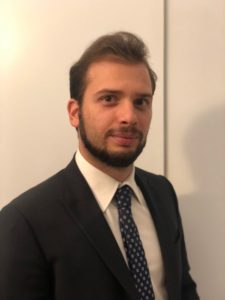 |
Dr. Giovanni Monizzi is a Cardiologist at “Centro Cardiologico Monzino” trained at University of Milan and with experience in research gained in Aalst, Belgium, one of the most important Centers for coronary intervention in Europe. Involved in the catheterization laboratory activity and in research especially in the field of trans-catheter valves treatment, acute and chronic coronary syndromes, coronary physiology and intravascular imaging. |
Watch the talk of Giovanni Monizzi, MD:
Jaume Amat(ROB SURGICAL and SPECIPIG) |
Capita Selecta #3: Animal models in MD verification process. MDR (Medical Device Regulation) is coming and it will have a high impact in new developments. Pre-clinical studies become relevant in this process and engineers will have to cooperate with vets. In this talk, Jaume Amat provided his insight on the use of animal model in preclinical studies. |
|
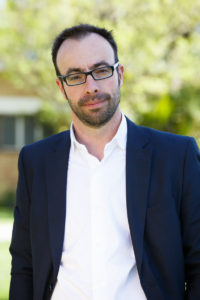 |
Jaume Amat is a Telecommunications Engineer and MBA from IESE Business School. Since 2000, Jaume has been directly involved in the creation of more than 10 companies in the field of biomedicine. During the last 20 years, he collected experiences in Tech-Transfer of different kind of products, technologies or services: Vaccines, biological treatments, Diagnostic kits, Medical Devices, Digital Health, services… Each technology or product with a specifics Regulatory and Business Model approach. Currently Jaume Amat is CEO at ROB SURGICAL and SPECIPIG.
ROB SURGICAL is committed to develop best-in-class robots for minimally invasive surgery. The first one is the Bitrack system, with which we hope to universalize precision surgery worldwide. Bitrack System is a first open robotic platform designed to improve the efficiency of today’s minimally invasive surgery. Bitrack is the result of more than ten years of cutting-edge research in surgical robotics. Our value proposition is to improve the efficiency of today’s robots through unique technology, improved usability, and lower acquisition costs for hospitals. SPECIPIG is a pioneer Breeding and Biomedical Research Centre focused on the pig model. SPECIPIG is a CRO (Contract Research Organization), specialized in the swine model, that provides support to the pharmaceutical, biotechnology and medical device industries. |
Watch the talk of Jaume Amat:
Jules Scheltes(DEAM) |
Capita Selecta #4: The DEAM adventure: what it takes to bring an octopus into the operating theater. Medical steerable devices provide maximum freedom in the surgical area, increasing surgeons dexterity and minimizing their strain. However, while researchers keep coming up with innovative and always smarter and more functional designs, translation of such technologies into the operating theater is not straight-forward. In his talk, Jules Scheltes will give an overview of his journey in this field, from his academic years, up to DEAM and the LaproFlex devices, DEAM’s steerable laparoscopic instruments, currently used in a growing variety of laparoscopic surgeries, in hospitals throughout Europe. |
|
 |
Jules S. Scheltes (M.Sc. 1996, PhD. 2003) is co-owner, CTO, CMO and Quality Manager of DEAM. He started his career as a research engineer in a joined project of the Delft University of Technology and the University Medical Center Utrecht, developing a medical device to execute coronary bypass surgery on a beating heart, through a closed chest. Despite resulting in several patents, prototypes, promising animal studies and finally a PhD thesis, his propitious academic study never saw the follow-up Jules envisioned. This experience showed him the gap between the deliverables of a university project and the requirements to actually start production. To bridge this gap, he started DEAM: an engineering company focused on the development of steerable medical devices. |
Watch the talk of Jules Scheltes:
Alberto Arezzo(University of Turin) |
Capita Selecta #5: The future of endoluminal robotics. |
|
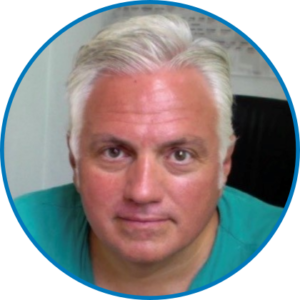 |
Prof. Alberto Arezzo is currently an Associate Professor of Surgery and director of the University Master in Operative Digestive Endoscopy at the Department of Surgical Sciences of the University of Turin (Italy). He is also the research lead at MITIC, the Minimally Invasive Therapy & Innovation Centre (Italy) and the responsible for the Surgical Endoscopy Unit at the San Giovanni Battista Nuovo Molinette Hospital in Turin (Italy).During his professional career, Prof. Alberto Arezzo has held numerous research and university positions, including the positions of Assistant Professor of Surgery at the University of Tübingen in Germany (1997-1999), Assistant Surgeon at ASL 1 Liguria in Italy (1999-2004), Assistant Surgeon at the Evangelic International Hospital in Genova, Italy (2004-2007) and Associate Professor of Surgery at the University of Turin in Italy (2007-2014). Prof. Arezzo received is Bachelor of Science in Medicine and Surgery from the University of Genoa in 1992 and obtained a Specialist Certification is General Surgery from the University of Genova (Italy) and the University of Tübingen (Germany) in 1997. He currently supervises one Assistant Professor of Surgery and four PhD students and has also been the supervisor of 100+ successful Master’s and Undergraduate projects at the University of Turin (Italy). |
Watch the talk of Alberto Arezzo:
Massimiliano Simi(MMI S.p.A.) |
Capita Selecta #6: Surgical Robotics trends and novel applications: SYMANI a Robot for Microsurgery Symani is a surgical system developed by MMI S.p.A. specifically to address the challenges of microsurgery. In his presentation, Massimiliano Simi talked about his journey in this field, from his academic times, up to becoming one of the founders of MMI and developing the Symani surgical system. Symani is intended for open surgery where the needs of precision and motion scaling are deemed beneficial by the surgeon and completed four successful surgeries in Florence, Italy.
|
|
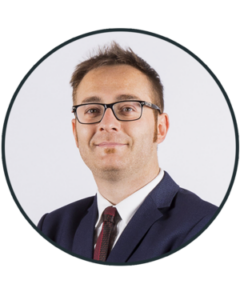 |
Dr. Simi is one of the founders of Medical Micro instruments (MMI) S.p.A. He has more than 10 years of experience in the robotic surgery sector. Massimiliano invented the NanoWrist articulated microinstruments and is listed as an inventor on all MMI patents to date. As the Vice President of R&D, he recruits, develops and manages a growing team of highly skilled engineers involved in New Products Introduction. Before starting the company, Massimiliano was a Senior Mechanical Engineer at MEDRA where he provided technical solutions in the field of robotics and mechatronics to medical device companies based in the Bay Area. Dr. Simi has a Ph.D. in Innovative Technologies and Medical Robotics from the prestigious University Scuola Superiore Sant’Anna in Pisa, Italy. His specialization was focused on microfabrication processes applied to endoscopic robotic capsules and magnetic-driven laparoscopic cameras which he designed and tested at the STORM Lab of Vanderbilt University. In addition, Dr. Simi has a Bachelor’s and Master’s Degree in Biomedical Engineering from the University of Pisa and completed an Executive MBA in 2016. |
Domenico Veneziano(INTECH Innovative Training Technologies) |
Capita Selecta #7: AI and the future of surgical education Various methods can improve surgical training in the operating theatre, but the master-apprentice model has worked for centuries to school proficient surgeons. However, the traditional training model of supervision and feedback from an experienced surgeon (‘see one, do one, teach one’), is no longer applicable for surgical training. In this talk, Prof Domenico Veneziano talked about how surgical simulation is becoming an established and valuable tool of training and assessment, achieving training without negative consequences for the patients. He introduced the INTECH surgical simulator and highlighted its success in training novice surgeons.
|
|
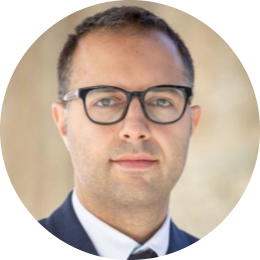 |
Urologist, an international key opinion leader in the field of surgical simulation and healthcare technologies, speaker for over 95 international events, coordinator since 2014 of over 90 training events in 16 countries, consultant for several international healthcare brands, like Cook, Storz and Essity.Professor of Urology at Hofstra University in New York and Honorary Professor of Urology at Moscow State University. He developed the modular training system that is used today by the European Association of Urology and is today in charge of training protocol development for the European School of Urology. Author of over 75 peer-reviewed manuscripts and of chapters from the most accredited books in the field of simulation. Winner of the Italian Matula prize, for the best under-40 Italian Urologist in 2019. |
